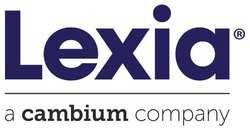In 2023, a national survey, conducted online by The Harris Poll and commissioned by Lexia, a part of Cambium Learning Group, has revealed that less than half (43%) of parents[1] strongly agree their child’s school has done a good job of rectifying unfinished learning from the 2021-22 school year.
For educators, teacher shortages and burnout are the only issues that loom larger than unfinished learning and other curriculum concerns. In Lexia’s 2023 nationwide survey of educators[2], almost half (45%) of respondents cited unfinished learning and curriculum issues like grade level appropriate topics as sources of concern for the 2023-24 school year. In addition, multiple respondents added comments about their struggle to meet the wide range of learning needs for all the students in their classroom.
Examples of those comments include:
● “[S]tudents beginning way below grade level.”
● “Not enough time to teach required curriculum.”
● “Students['] needs outweigh adult ability to support.”
“Results from the 2022 NAEP and the 2023 NWEA assessments reinforce the picture we’ve obtained from these two surveys,” said Lexia President, Nick Gaehde. NAEP scores of fourth and eighth graders revealed a decline from 2019, with 69% of fourth graders and two-thirds of eighth graders reading below proficiency. Additionally, NWEA’s data showed that the general pace of students’ learning slowed rather than accelerated during the past school year. “That means unfinished learning resulting from the 2020 pandemic is still a concern,” added Gaehde. “In fact, it may have been exacerbated.”
Gaehde continued, “Everyone’s looking for solutions, and although our surveys found that 47% of parents and 73% of Lexia’s educators feel more one-on-one time for students with teachers would help students be at or above grade level during the 2023-24 school year, the teacher shortage makes that solution unfeasible in many areas of the country.”
However, parents and educators agree on another solution that is more feasible for many districts – using educational technology to support teachers’ efforts. When asked what their schools did well during the 2022-23 school year, Lexia’s educators most often cited technology investments for classroom learning, with over two-thirds (69%) of respondents selecting that survey option. Parents have a great deal of confidence in teachers’ technological capabilities, with 88% of them believing that teachers at their children’s schools are properly trained to use technology in the classroom.
The Lexia survey also questioned educators about the product features that supported literacy instruction. The most frequently cited was personalization for each student, which was chosen by 76% of educators. Progress monitoring tools came a close second, being cited by three-quarters (75%) of respondents. Over two-thirds of respondents (69%) wanted features that were based on the science of reading as well as features that were flexible or adaptable. Rounding out the top five was data-driven action plans, a feature that was chosen by 58% of respondents.
Other survey findings include:
● 55% of parents in the Lexia/Harris Poll survey say their child had put in extra time through tutors, extra classroom work or summer school to fully make up for the unfinished learning from the previous school year.
● 35% of parents think their child’s school could improve on investing in reading-specific technology resources to help students outside the classroom when thinking about their child's current reading and language abilities.
● 46% of educators say more training and professional development opportunities are a good way to retain teachers.
● 41% of educators who primarily taught 9-12 said they had concerns about ChatGPT while only 19% of educators who primarily taught 6-8 said they had concerns about the artificial intelligence technology.
Lexia Educator Survey Methodology:
The survey was conducted online within the United States by the Lexia Learning research team from May 9 – June 14, 2023, among 862 Lexia users including classroom teachers and building and district administrators who logged into myLexia in the 30 days prior to the survey being deployed.
Harris Poll/Lexia Parent Survey Methodology:
The 2023 survey was conducted online within the United States by The Harris Poll on behalf of Lexia Learning from June 14 – June 21, 2023, among 877 U.S. parents of children attending school in the fall entering pre-K-12th grade. The sampling precision of Harris online polls is measured by using a Bayesian credible interval. For this study, the sample data is accurate to within +/-4.4 percentage points using a 95% confidence level. For complete survey methodology, including weighting variables and subgroup sample sizes, please contact charlotte@nickelcommpr.com
About Lexia Learning
Lexia, a part of Cambium Learning Group, is a leader in science of reading-based solutions. For nearly 40 years, the company has focused on pre-K-12 literacy and today provides solutions for students and educators. With a complete offering of professional learning, curriculum, and embedded assessment, Lexia helps more learners read, write, and speak with confidence. For more information, visit www.lexialearning.com.
About Cambium Learning Group
Cambium Learning® Group is the education essentials company, providing award-winning education technology and services for K-12 educators and students. With an intentional collection of respected global brands, Cambium serves as a leader, helping millions of educators and students feel more seen, valued and supported every day. In everything it does, the company focuses on the elements that are most essential to the success of education, delivering simpler, more certain solutions that make a meaningful difference right now.
To learn more, visit www.cambiumlearning.com or follow Cambium on Facebook, LinkedIn, and Twitter. The Cambium family of brands includes: Cambium Assessment, Lexia® Learning, Learning A-Z®, Voyager Sopris Learning®, ExploreLearning®, Time4Learning®, and Kurzweil Education®.











